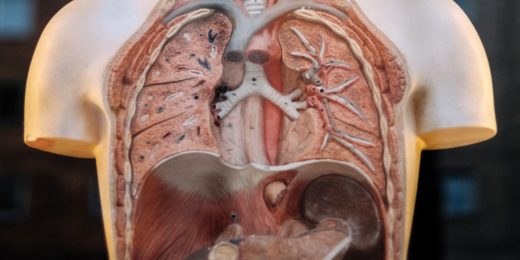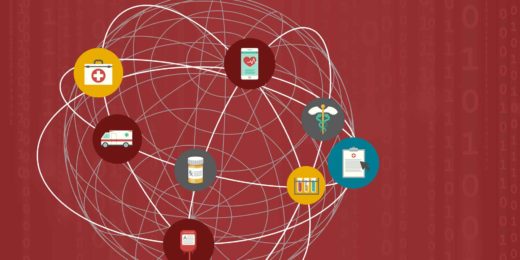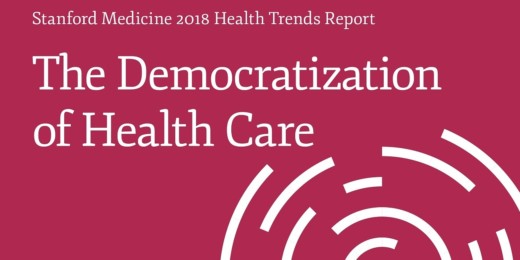Stanford Medicine's Big Data in Precision Health conference unites people who create, study and use information from big data to improve health.
Category: Data Sciences
Countdown to Big Data in Precision Health: What’s the government’s role?
Before the Big Data in Precision Health conference, Don Rucker, the national coordinator for health IT, discusses the government's role in health data.
What healthy looks like: New study offers clues based on personalized tracking
Stanford scientists and their collaborators tracked the health of over 100 people for several years, flagging early signs of disease.
Countdown to Big Data in Precision Health: When industry and academia converge
Ahead of the Big Data in Precision Health conference, Emma Huang from Johnson & Johnson Innovations discusses collaborations between industry and academia.
Countdown to Big Data in Precision Health: Robots that are here to help
Maja Matarić, a robiticist at the University of Southern California, plans to speak about socially assistive robotics at Big Data in Precision Health.
Immune cell turned biomarker: Predicting severity of lung scarring
By scouting for a particular immune cell in the blood, scientists can tell which patients with a lung-scarring disease are at higher risk for death.
Untangling the microbiome — with statistics
Understanding the roles of various microbes in the human microbiome is challenging, but statistics can help, Stanford researcher Susan Holmes explains.
Registration now open for Stanford’s Big Data in Precision Health conference
The seventh annual Big Data in Precision Health conference will be held May 22 and 23 on the Stanford campus; registration is now open.
Stanford launches new Institute for Human-Centered Artificial Intelligence
The Stanford Institute for Human-Centered Artifical Intelligence will advance AI research, education and more to improve the human condition.
Heart failure boosts risk of death following surgery
A Stanford researcher has found that patients with heart failure, even if it's relatively mild, are more likely to die within three months after surgery.
A look at how data is democratizing health care
Dean Lloyd Minor discusses findings of Stanford Medicine's recently released Health Trends Report.
AI demonstrates potential to identify irregular heart rhythms as well as humans
Artificial intelligence tied to a wearable heart monitor has shown potential to help diagnose irregular heart rhythms, new research shows.
Stanford Medicine Health Trends Report examines opportunity to democratize health care
The Stanford Medicine 2018 Health Trends Report found that an explosion of data in medicine is democratizing health care.
More data, more problems: Selecting fewer measurements could improve health-risk assessments
A Stanford study highlights a data optimization method for health-risk assessments to lower costs and and improve diagnostic power.
Stanford Medicine magazine explores how digital technology is changing health care
The latest issue of Stanford Medicine magazine explores the potential for digitally driven innovation to transform health education, diagnostics and care.
Big data strikes again — subdividing tumor types to predict patient outcome, personalized treatment
A Stanford team has developed an algorithm that uses data about tumors to identify new classifications that can provide information about patient outcomes

















